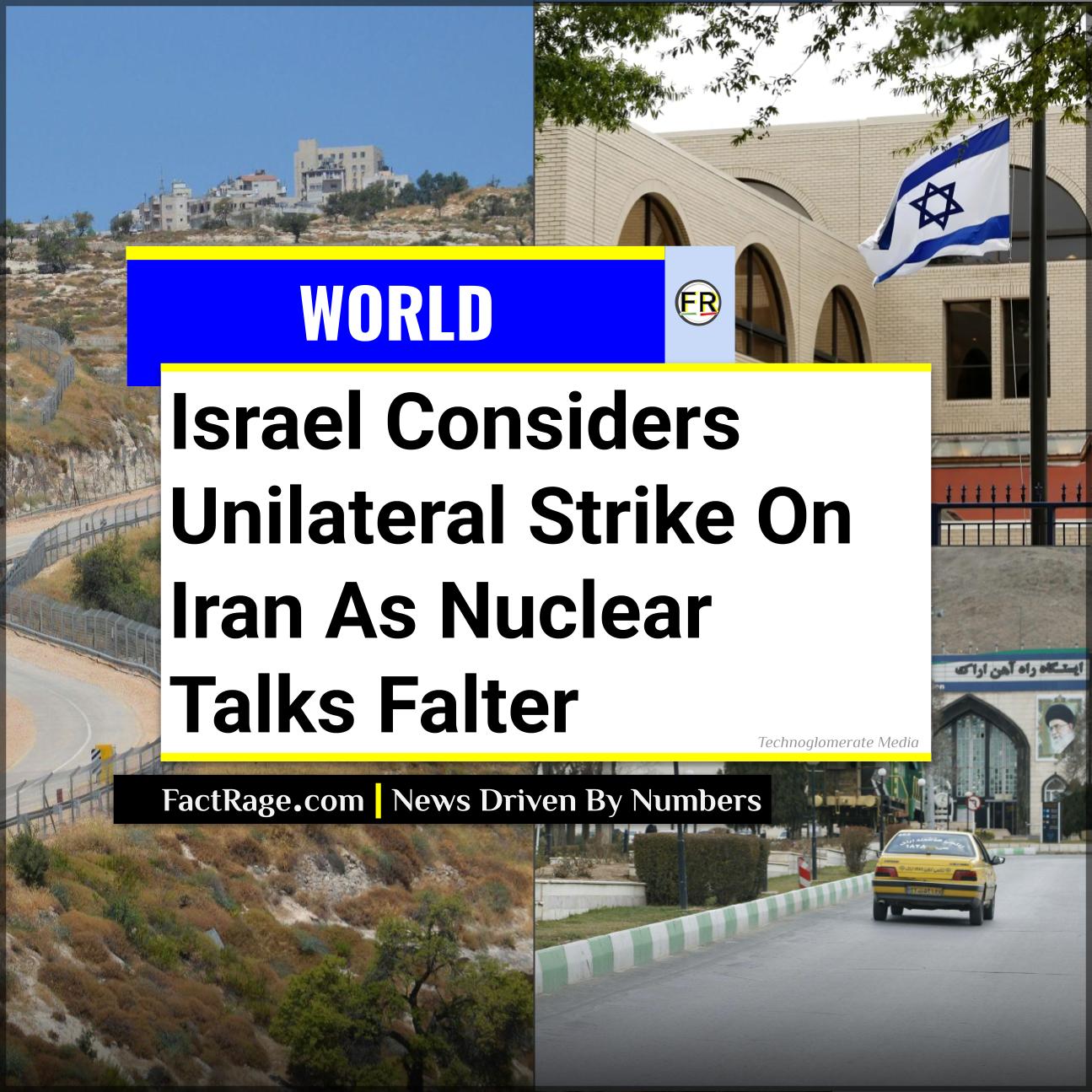WASHINGTON, DC – The United States is actively preparing for a potential Israeli military strike against Iran, which officials believe could occur within days, as high-stakes diplomatic talks to curb Tehran’s nuclear program appear to be on the verge of collapse.
Key Facts
- U.S. Takes Precautionary Measures – The U.S. has restricted travel for government employees in Israel and authorized the voluntary departure of some personnel and military families from countries in the region, citing ‘heightened regional tensions’.
- Nuclear Talks at a Breaking Point – The potential for conflict coincides with faltering negotiations between the U.S. and Iran. President Trump has expressed frustration with Iran’s ‘delaying,’ while a key sticking point remains the U.S. demand that Iran cease all uranium enrichment.
- International Censure – The International Atomic Energy Agency (IAEA) board of governors passed a resolution on Thursday declaring Iran in non-compliance with its nuclear safeguard obligations, the first such finding in nearly 20 years.
These developments have placed the Middle East on high alert, with the prospect of a new, direct military confrontation between regional adversaries Israel and Iran growing more distinct. The moves by the U.S. signal a serious assessment of the potential for conflict, even as a final round of diplomatic talks is scheduled for this coming Sunday in Oman.
What’s Behind the U.S. Warnings and Evacuations?

In a series of moves reflecting deep concern, the U.S. Embassy in Jerusalem issued a security alert on Thursday restricting the movement of its employees and their families. The directive bars travel outside the greater Tel Aviv, Jerusalem, and Beersheba areas. This followed a broader authorization for the departure of non-essential U.S. government employees and military family members from locations across the Middle East, including Iraq.
President Donald Trump confirmed the reasoning behind the personnel movements, telling reporters, “They are being moved out because it could be a dangerous place.” When asked how to lower the temperature, he stated simply, “They can’t have a nuclear weapon.” Multiple U.S. officials, speaking anonymously, have indicated these precautions are in direct response to intelligence that Israel is seriously considering and making preparations for a unilateral military strike on Iran’s nuclear facilities.
Why Are Nuclear Negotiations Faltering?
The escalating tensions run parallel to a breakdown in nuclear negotiations brokered by the Trump administration. The administration is awaiting Iran’s response to a proposed framework for a deal, but President Trump has publicly voiced his diminishing confidence. “They seem to be delaying, and I think that’s a shame,” he stated in a recent interview.
A major impasse in the talks is the U.S. insistence on “zero enrichment” of uranium within Iran. Tehran maintains that enriching uranium for peaceful civilian energy is its right under the Nuclear Non-Proliferation Treaty. The IAEA has reported that Iran is currently enriching uranium to 60% purity, a level that is a short technical step from the 90% needed for a weapon. This non-compliance led to the recent IAEA board resolution formally censuring Tehran. Israel views any deal that does not completely halt Iranian enrichment as unacceptable, fueling its consideration of military action.
How Are Israel and Iran Responding?
Israel has remained officially quiet on the specific reports of an impending strike. However, Prime Minister Benjamin Netanyahu has repeatedly vowed that he will not allow Iran to obtain a nuclear weapon. According to reports, Israeli officials believe their window to conduct effective manned strikes against Iran’s air defenses may be closing.
Iran, for its part, has issued stern warnings against any attack. Iranian Defense Minister Aziz Nasirzadeh said that if Iran is subjected to strikes, it would retaliate by hitting U.S. bases throughout the region. “All of its bases are within our reach,” he told Iranian press. “We will target all of them in the host countries without hesitation.” A senior Iranian official also told Reuters that a “friendly” country had warned them of a potential Israeli attack, but vowed that Iran would not compromise on its nuclear rights due to pressure.













